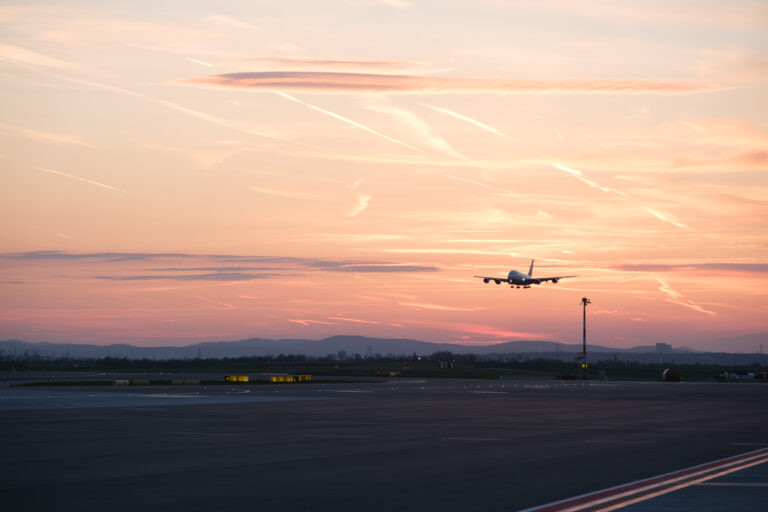In today’s turbulent global market, where supply chains face constant disruption and shifting trade dynamics, the secret to thriving in logistics lies not just in technology or scale but in maintaining a personal connection with customers while embracing innovation. This balance, which few companies manage well, is key to success in an industry where trust and agility are paramount.
“Of course, we make use of digitalisation and need to get some efficiency and speed out of this,” Robert Stahlschmidt, Country Manager Air and Sea Germany at Gebrüder Weiss, explains. But, “we call it best of both worlds. We use modern technologies and also make use of human intelligence.”
Gebrüder Weiss is a perfect example of this philosophy. While embracing digital tools like their “myGW” online platform—used by over 25,000 customers—the company refuses to lose the personal touch that has been part of its DNA for centuries.
“Our secret, if you want to tell it like this, is our people, right? We try to have very good, experienced staff. We train them, take care of them, and that’s what our customers feel,” Stahlschmidt says. He highlights how the company deliberately avoids trying to mimic the largest global logistics giants, focusing instead on long-term relationships and personalised service.
“In a market that is growing increasingly complex, customers want to know there is a person behind their shipment,” he adds. This human connection fosters trust, particularly important when handling sensitive or time-critical cargo.
Why personal contact still matters
Stahlschmidt emphasises that logistics remains “people’s business.” Even with all the advancements in automation and digital platforms, customers still want to “know if there’s someone in the background who really knows about their business.”
“They don’t want to trust only their smartphone device or a login number,” he explains. “If there’s something going out of scale, they need to have a personal contact available 24/7. We find a solution and make it happen.”
This emphasis on reliability and personal service is especially critical in an era when supply chains are vulnerable to unexpected disruptions—from pandemics to geopolitical tensions. Stahlschmidt describes the relationship with customers as a “partnership,” not a one-time transaction, built on long-term trust.
Growth despite market uncertainty
Even as global trade tensions and tariffs create uncertainty, Gebrüder Weiss is expanding strategically. “We are expanding right now. The latest one is Thailand, which just started this week with about 20 people, giving us a nice coverage in the East Asia region with about 400 people, plus an additional 400 in China,” Stahlschmidt says.
Despite political and economic complexities, the company sees “big and huge potential” in Asia, particularly between Europe and emerging markets like Thailand. He stresses the importance of steady, realistic growth that meets customer needs without overextending.
The power of multimodal solutions in a disrupted world
Stahlschmidt also highlights how multimodal connectivity—integrating air, sea, rail, and road transport—is critical for resilience. “We try to find several different options for our customers,” he says.
Flexibility is key. “We don’t push customers into fixed systems. We listen and build specific solutions for their needs. Everybody likes to have options,” he notes. This approach proved invaluable during the Covid-19 pandemic, when supply chains were severely disrupted, and alternative routes and modes were necessary.
“We try to be prepared as much as we can and be on the spot for them, available to give different options,” Stahlschmidt explains. He frames disruptions as inevitable but manageable challenges, and stresses the importance of flexibility and readiness.
Pharma, e-commerce, and sustainability
When asked about specific cargo trends, Stahlschmidt points to pharmaceuticals and e-commerce as key growth areas. “The pharmaceutical industry is very interesting and growing, especially after the Covid-19 experience,” he says. This sector demands highly specialised handling, often relying on airfreight for urgent shipments but also increasingly using temperature-controlled sea freight.
E-commerce, particularly imports from Asia, has also transformed airfreight. However, Stahlschmidt notes this is now “decreasing right now,” as European customers become more conscious about production quality, local sourcing, and sustainability.
“Sustainability is growing in importance. Everybody likes cheap shopping, but people also care about sustainability topics,” he observes. The company offers options like sustainable aviation fuel and “book and claim” models to reduce environmental impact, signalling how logistics providers must adapt to new market demands.





